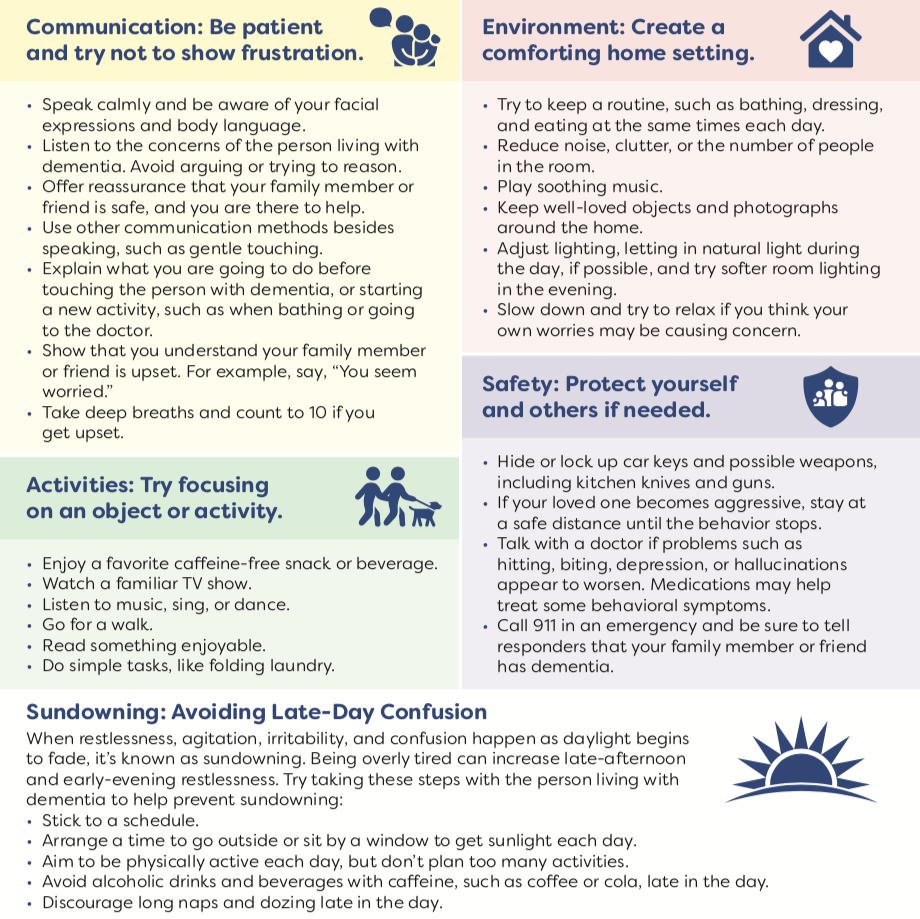
How to Manage Sundowing in Alzheimer’s Patients
Sundowning is a common behavior in Alzheimer’s patients that involves increased confusion, anxiety, agitation, pacing, or restlessness that begins or worsens as daylight begins to fade.
Caregivers of Alzheimer’s patients often find sundowning challenging to manage, but several strategies can help.
First, maintain structure and routine during the day to try to avoid overstimulation and fatigue.
Create a predictable schedule for meals, activities, visitors, and other events.
Regular exercise during the day can also promote better sleep at night.
Second, reduce noise and distractions in the evening and limit screen time from TVs and devices.
Keep environments well-lit with night lights, lamps, or natural light and play soothing music if it helps them relax.
Caregivers should also evaluate if pain, hunger, or needs like having to use the bathroom could be contributing to sundowning behaviors.
Attending to basic needs and making the patient as comfortable as possible is key. It may help to have patients follow relaxing bedtime rituals like taking a bath, reading, or listening to calm music.
Validate confused feelings by empathizing and avoiding arguments about misperceptions.
Tap into preserved long-term memory with reminiscence of times and familiar places.
If these behavioral management tips do not remedy sundowning, consult a doctor about potential medication options.
Anti-anxiety medications, mild sedatives, or low-dose anti-psychotics could be prescribed in severe cases if behaviors impact safety or quality of life.
With attentive care and management tailored to the individual patient, caregivers can help control sundowning challenges.
